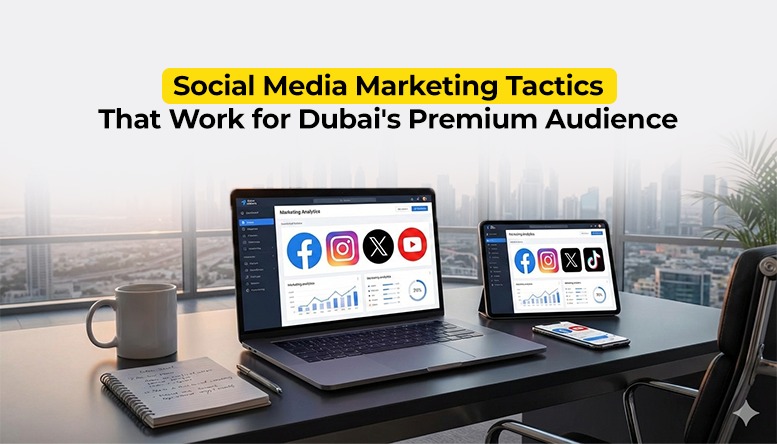What Is Online Reputation Management (ORM)?
- November 13, 2024
- Post By: Anna Mariya Joseph

The world is changing. so does every online method. Today, maintaining an online reputation has taken on a more critical stand in the digital age. ORM, aka Online Reputation Management, is an activity mainly aimed at shaping and controlling a brand’s or individual’s reputation online. It includes keeping track of information seen online and taking care of content or related discussions. A company’s online reputation is one of its most valuable assets, and ORM plays a vital role in protecting and building it. In the blog, What is Online Reputation Management (ORM)?, we will talk about which elements comprise it, how it links with SEO, and how it is different from Public Relations by the experts at Inter Smart, the top Digital Marketing agency in Dubai.
What Is Online Reputation Management (ORM)?
Going by definition, ORM is the practice of making sure that the public sees one’s business on the internet. Online Reputation Management makes certain that when people search for a business, they only find information portraying a favorable picture of them.
Factors That Contribute to ORM
It’s not just a matter of answering complaints or negative reviews from other social media. ORM includes various types of media owned, paid, earned, and shared, all channeled together to shape public perception. They are :
-
Owned Media
The content is controlled by the company. They include websites, blogs, social media pages, etc. When it comes to ORM, employee and customer stories, user-generated content (UGC), reviews, webinars, and brand-created content all fall under owned media.
Employee and Customer Stories: Sharing positive experiences from employees or customers builds trust.
User-Generated Content (UGC): UGC is the content that is produced by consumers instead of branded one. A picture or video of a happy customer posted on the blog may considerably boost the credibility of that brand. Think of how brands like Coca-Cola or Starbucks encourage customers to share their experiences through the hashtagging of social media.
Reviews: Online reviews are crucial for Online Reputation Management. Positive reviews help build trust, while negative reviews (if not addressed properly) can tarnish a company’s reputation.
Webinars: Hosting informative webinars is a great way for a brand to showcase its knowledge, engage with the audience, and position itself as an expert in the field.
Brand-Created Content: Blog posts, case studies, and videos created by the brand itself also play a key role in shaping its online image.
-
Paid Media
Refers to sponsored social posts, affiliate programs, native advertising, and lead-generation campaigns.
Sponsored Social Posts: Brands pay for advertisements that appear on social media platforms targeted to specific demographics.
Affiliate Programs: Brands can also work with influencers or affiliates to spread their message while maintaining their reputation through trusted third parties.
Native Advertising: This involves blending ads into the content that people are already consuming.
Lead Generation: Using paid tactics to attract and nurture leads can build a positive reputation, particularly when done with transparency and value.
-
Earned Media
It is the media publicity or word of mouth gained through covers instead of purchase. Eg- media relations and influencer marketing, which actually fall under public relations.
Media Relations: Featuring credible news sites can help to increase credibility and depict authority in a brand.
Influencer Marketing: Working with an influencer who sets values with the brand will boost reputation. Example: Nike works with sports/fashion influencers.
Public Relations (PR): PR plays a huge role in Online Reputation Management(ORM). Positive press releases, interviews, and media coverage help shape a brand’s public image.
-
Shared Media
Shared media is all about collaboration and alliance. It includes community service, campaigns related to co-branding, and social media posts.
Community Service and Partnerships: Those brands that work for community service and social causes simply leave a good impression. For example, Patagonia’s commitment to environmental causes strengthens its brand image as a responsible, caring company.
Co-Branding Campaigns: When two reputable brands collaborate, their combined efforts can boost both brands’ reputations. Think of the Apple and Nike partnership to promote fitness through technology.
Organic Social Media Posts: Brands sharing their thoughts and interacting with customers on social media platforms help establish a strong reputation. Interaction with customers and transparency towards them may support in handling negativity if it occurs.
The Connection Between ORM and SEO
ORM and SEO are interrelated. A nice online reputation can help with your search engine rankings and can certainly influence search rankings. If a brand has so many positive reviews, gets mentions in the media, and has better user-generated content, it is more likely to rank higher in search results. Conversely, negative reviews or a lack of online presence can lead to lower rankings.
More companies would focus on Online Reputation Management(ORM) so that, with increased organic traffic, the resultant visibility will be better and thereby customer engagement. Therefore, responding to reviews very quickly or removing all negative content is vital, not just for reputation but also to keep the good SEO health of a brand.
How Is Online Reputation Management Different from PR?
Even though both ORM and PR deal with the building of a company’s image, they are different. PR primarily deals with managing public relations and media coverage with the help of news releases, events, and media outreach. It aims to shape the public perception of a brand or individual.
ORM, on the other hand, is broader. It involves monitoring online mentions, responding to online reviews, managing social media presence, and using SEO strategies to improve a brand’s online image. Online Reputation Management is more focused on managing a brand’s digital footprint, whereas PR works more on traditional media and public events.
In short, ORM is the digital aspect of managing a reputation, while PR is focused on media relations and public-facing activities.
Benefits of Online Reputation Management
A good ORM strategy offers several benefits to businesses and individuals
- Enhanced Trust and Credibility: A positive reputation online leads to trust from the customers. Customers buy mostly from trusted brands.
- Better Search Engine Rankings: Reputation builds up a company with a good reputation to rank top on search engines, thus leading to higher traffic to its website.
- Increased Customer Loyalty: It creates loyalty and brings the customers back to the trusted brand.
- Improved Sales and Revenue: Positive reviews, social media mentions, and testimonials from their customers are encouraging factors for the buying decisions of potential customers.
- Crisis Management: ORM helps manage crises and negative comments or reviews well before they explode.
In conclusion, Online Reputation Management is undoubtedly part of any business’s toolbox for winning strategies.
Get A Call back from Our Expert
Need tailored guidance or have specific questions? Simply request a callback, and one of our knowledgeable experts will reach out to you at a time that suits your schedule.
Marketing
Services





